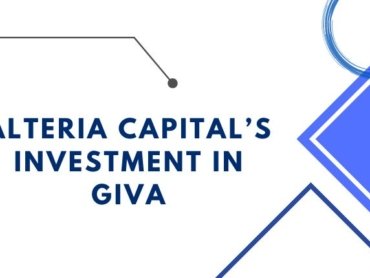Strategic Partnerships and Alliances
Strategic partnerships and alliances refer to relationships between two or more companies that work together to achieve mutual benefits. These partnerships can be particularly useful for startups, as they can help them access new markets, technologies, or resources that would otherwise be difficult to obtain.

Types of Strategic Alliances
- Joint Ventures
- Partnerships
- Licensing Agreements
- Supply Chain Partnerships
- Distribution Partnerships
1) Joint Ventures: A joint venture is a type of strategic alliance in which two or more companies come together to form a new business entity. The partners in a joint venture share ownership, resources, and profits.
2) Partnerships: A partnership is a strategic alliance in which two or more companies work together on a specific project or business venture. Partnerships can be formal or informal and can be formed for a variety of reasons.
3)Licensing Agreements: A partnership is a strategic alliance in which two or more companies work together on a specific project or business venture. Partnerships can be formal or informal and can be formed for a variety of reasons.
4) Supply chain Partnerships: A licensing arrangement is a type of strategic alliance in which one company allows another company to use its intellectual property, such as patents, and trademarks, in exchange for royalties or other forms of compensation.
5)Distribution Partnerships: distribution partnership is a strategic alliance in which one company agrees to distribute the products of another company. This type of alliance can be useful for companies looking to expand their distribution channels or reach new markets.
Pros of Strategic Alliances
- This may result in gaining customers, especially ones in unfamiliar markets
- May generate additional revenue and increase profitability
- May diversify a company’s revenue stream
- May reduce the operational risk of a company due to the addition of unique assets
- May positively influence the brand and perception of the company
Cons of Strategic Alliances
- May require more work in collaborating and communicating with larger teams
- May result in one side getting a better deal than the other (even if this wasn’t what was planned)
- May result in conflict should the alliance members disagree on a longer-term strategy
- May negatively influence the brand and perception of the company
Benefits of strategic partnerships as a startup?
1. Access to new markets: A strategic partnership can help a startup access new customers, distribution channels, and other resources that would be difficult or expensive to acquire on its own.
2. Shared resources: A strategic partnership can allow a startup to leverage the resources of its partner, such as technology, facilities, or expertise. This can help the startup save money and accelerate its growth.
3. Increased credibility: A strategic partnership with a well-established company can lend credibility to a startup, making it more attractive to customers and investors.
4. Risk reduction: A strategic partnership can help a startup spread its risks and reduce the impact of any one particular risk.
5. Innovation: A strategic partnership can foster a collaborative environment that encourages innovation and helps a startup stay ahead of the curve.
6. Competitive advantage: A strategic partnership can give a startup a competitive advantage by allowing it to offer unique products or services that are not available to its competitors.
What's the update?
Get latest Updates on latest funding rounds, government schemes, and many more....
Binny Bansal, a co-founder of Flipkart, may invest $100 million to $150 million in PhonePe
Binny Bansal, the co-founder of Flipkart, has made a strategic investment in PhonePe, a mobile payments platform. This move is expected to have a major impact ...
Plans by BYJU to raise $250 million in pre-IPO investment from Akash
BYJU is the latest Indian unicorn to make headlines, with the news of its plans to raise $250 million in pre-IPO investment from Akash Ambani. This move has be ...
Alteria Capital finances GIVA, a jewellery firm, with Rs 40 Cr in venture debt
Alteria Capital's strategic investment in GIVA, a jewellery retail company, is worth Rs 40 Cr and is set to revolutionize the jewellery retail sector in India. ...
Mintifi raises $110M in Series D, and Mitra receives funding for its early stages
The recent funding boosts to Mintifi and Mitra are indicative of the growing importance of FinTech in the global economy. As these two companies continue to de ...
Our Partners
We continuously work with industry leaders and in collaborations to provide endless supports to entrepreneurs.







